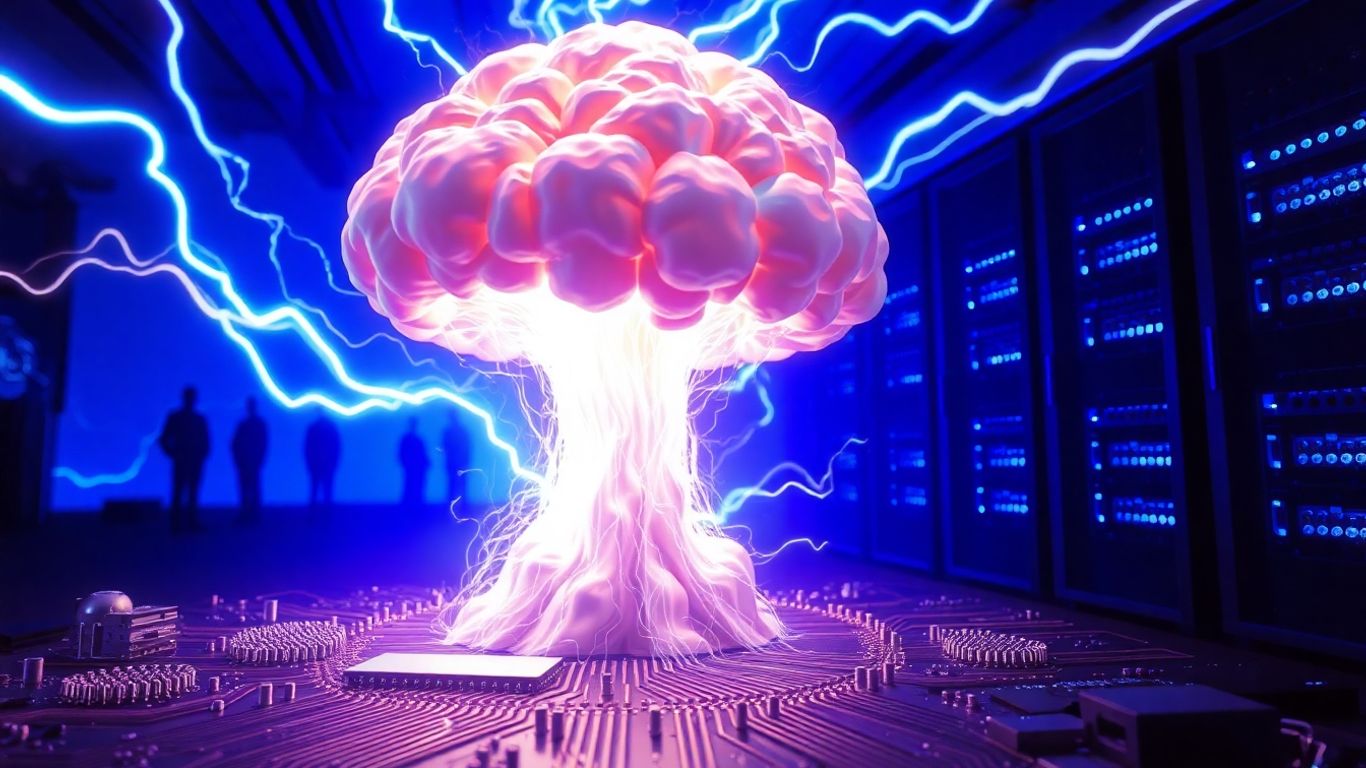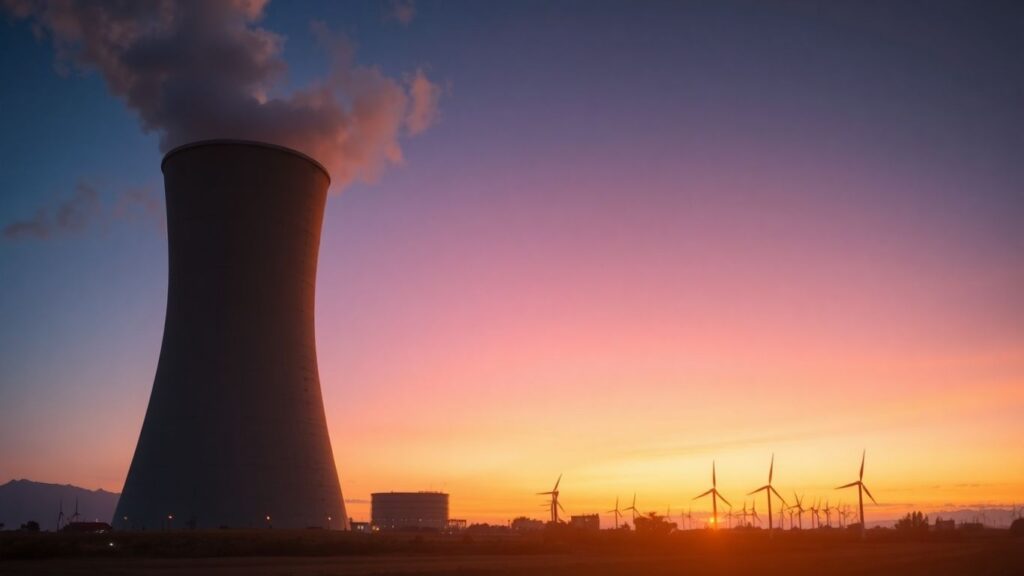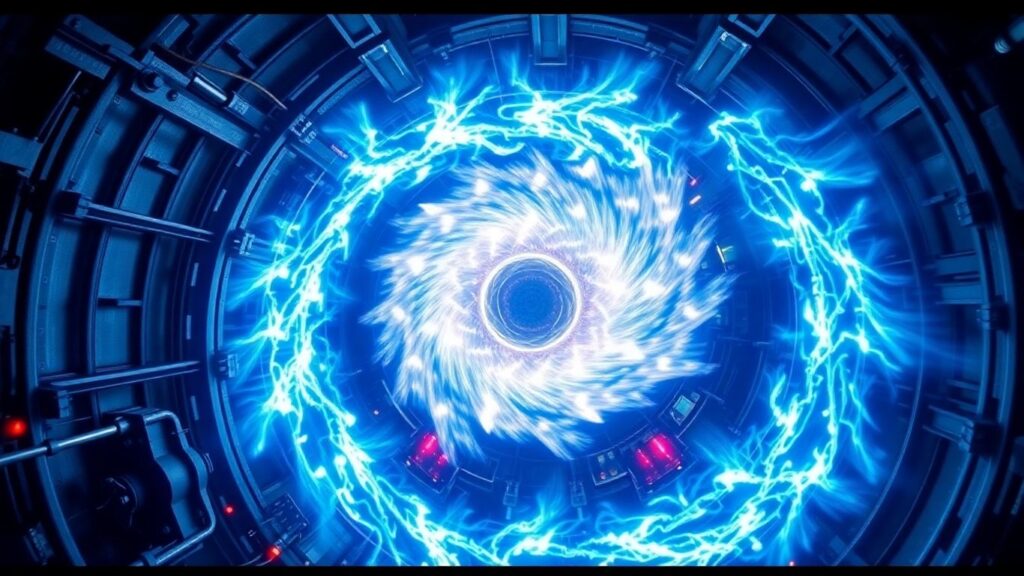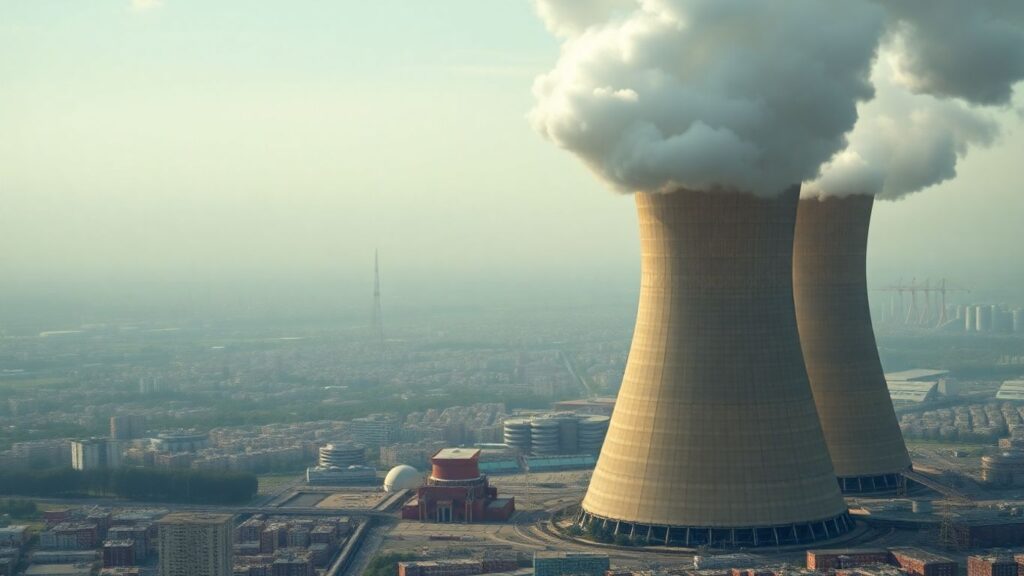In a significant shift, major technology companies are making substantial investments in nuclear power to meet the escalating energy needs of artificial intelligence development. This strategic pivot aims to secure reliable, carbon-free electricity, addressing both climate goals and the immense power consumption of AI data centers.
Key Takeaways
- Big Tech firms like Microsoft, Google, Amazon, and Meta are increasingly turning to nuclear energy.
- Investments range from purchasing power from existing plants to funding the development of advanced small modular reactors (SMRs).
- The primary driver is the massive and constant electricity demand from AI data centers, which traditional renewables struggle to meet 24/7.
- Challenges include the long lead times for new nuclear construction and the current limitations of SMR technology.
The AI Energy Crunch
Artificial intelligence is driving an unprecedented surge in electricity demand. AI data centers require vast amounts of power, and projections indicate this demand could increase dramatically in the coming years. Tech giants, many of whom have pledged to achieve net-zero emissions, are finding that their existing investments in solar and wind power are insufficient to meet these new energy requirements reliably.
Big Tech’s Nuclear Investments
Companies are pursuing a multi-pronged approach to nuclear energy:
- Reactivating Existing Plants: Microsoft has made a significant investment to reopen the Three Mile Island nuclear plant in Pennsylvania, now renamed the Crane Clean Energy Center. This strategy is seen as quicker and less expensive than building new facilities.
- Investing in Advanced Reactors: Google and Amazon are investing in companies developing small modular reactors (SMRs). These next-generation reactors are designed to be smaller, potentially faster to build, and safer than traditional plants. Google is backing Kairos Power, while Amazon has invested in X-energy.
- Power Purchase Agreements: Meta has secured a 20-year deal for nuclear power from Constellation Energy’s Clinton Clean Energy Center in Illinois, ensuring a steady supply for its AI ambitions.
Advantages of Nuclear Power
Nuclear energy offers several key advantages for tech companies:
- Reliability: Unlike intermittent sources like solar and wind, nuclear power plants provide a constant, 24/7 supply of electricity, which is crucial for data centers operating continuously.
- Carbon-Free: Nuclear power generates electricity without direct carbon dioxide emissions, aligning with corporate climate goals.
- Land Use: Nuclear plants require less land compared to solar or wind farms to produce the same amount of energy.
Hurdles and Skepticism
Despite the enthusiasm, significant challenges remain:
- Construction Timelines: Building new nuclear plants, even SMRs, can take many years, potentially not meeting the immediate energy demands of the current AI boom.
- Technological Maturity: Many advanced reactor designs are still in development and have not yet been commercially deployed, leading to skepticism about their readiness and cost-effectiveness.
- Waste Disposal: The issue of safely storing nuclear waste continues to be a concern.
Experts caution that while nuclear power can play a vital role, it may not be a sole solution. The rapid growth of AI necessitates a combination of energy sources, including renewables, energy storage, and potentially fossil fuels in the interim, to meet the immense and growing global energy demand.












